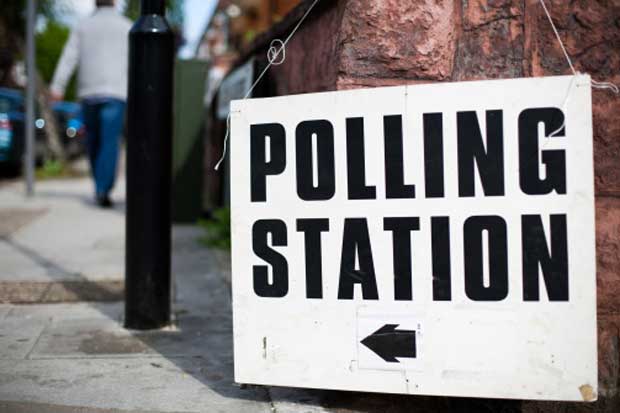Forget the European elections, which everyone (particularly those who fancy causing a bit of grief for David Cameron) expects to produce humiliating results for the Conservatives. The elections that have a longer-lasting impact that take place on the same day are the local elections. I look at the emphasis the Tories are putting on campaigning in the locals that goes over and above anything they’re doing for seats in Brussels, in my Telegraph column today. But even those areas that don’t have concurrent local and European polls on 22 May aren’t exhausting themselves on campaigning for the European elections.
Last year, the Conservatives tried to manage expectations by suggesting at one point that they would lose up to 750 seats – in the end they lost 335. This year there’s a private hope that they could hold onto the seats they have – and also gain some in certain areas. The party even hopes it could win some seats off Labour in Tower Hamlets.
Analysis by Tony Travers of the London School of Economics suggests that Croydon, Redbridge, Havering, Merton, Tower Hamlets, Kingston and Harrow are the most marginal councils which could possibly change political control. Travers also expects Ukip to find the most purchase for its campaigns in Havering, Barking and Dagenham and Bexley, as the part has enjoyed its best results in London Assembly elections in eastern boroughs. Chris Game of the University of Birmingham lists Harrow, Merton, Redbridge and Croydon as low-hanging fruit for Labour to take control.
The reason these council seats matter to MPs is that they draw some of their most dedicated campaigners for their own election from local authority seats. If you take a load of seats from your parliamentary opponent’s party this year, you’ll weaken their 2015 ground war, and strengthen yours.
Some Labour MPs are similarly anxious that a poor showing for their party in these elections in May could cause what one senior MP described to me as ‘serious disillusionment’.
It’s also interesting to note the shift in activists’ demeanour over the past 12 months. MPs campaigning in local elections this year tell me that their local parties are upbeat, that they are cheered by the recovery, and that the national party is generally much slicker. One MP says:
‘My activists think the national party has got its act together. We’re far away from that year of the bad Budget, and they now think we’re focusing on the economy and on welfare. They will react very badly to any uproar in the Parliamentary party after the results.’
Another says:
‘The issue for the European elections is not how badly will you do – we’re not expecting to be in a good place – the issue is will the parliamentary party and the voluntary party remain focused enough to say that if we fall apart and we turn on the leadership we deserve to have our asses kicked.’
Keeping MPs focused is one of the reasons the whips have been organising local election campaign days. It’s also why there has been a significant attempt to reconcile some of the most effective troublemakers, such as Andrew Bridgen, to the party. If Number 10 and the whips can seal up as many sores between now and 22 May, they’ll hope to contain what trouble there is to such a small group that it looks ridiculous and that anxious MPs, particularly those in marginal seats who are becoming increasingly vocal in admonishing troublesome colleagues, turn on the rebels and tell them to shut up.
P.S. One thing that any would-be troublemakers will probably seize on is the next set of net migration figures, published by the ONS on the morning of polling day. If they’re bad, it will be perfect fodder for someone such as David Davis to claim that the Conservatives need to move rightwards on this policy area.







Comments